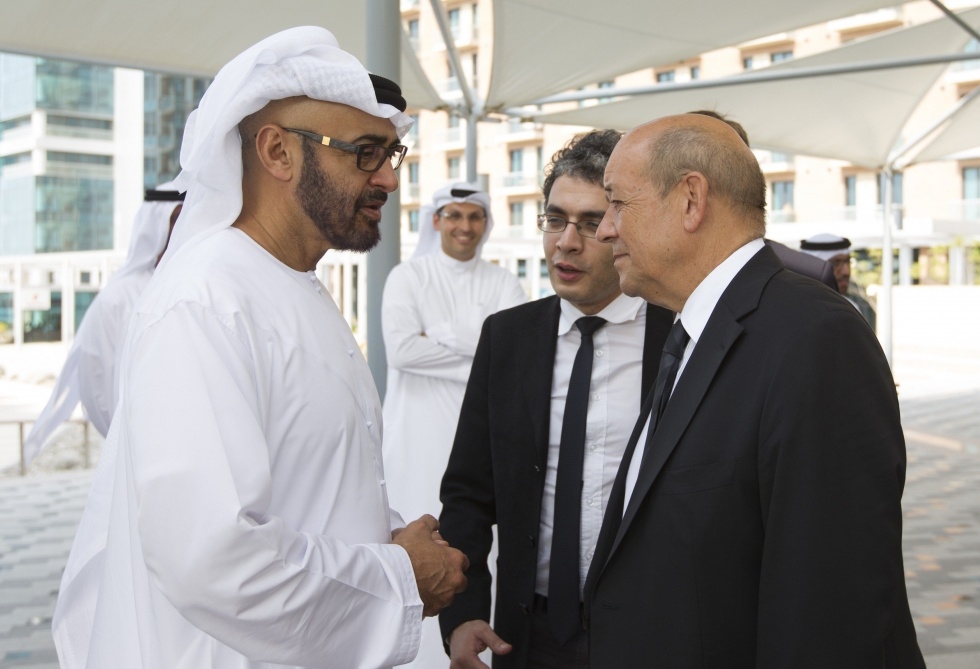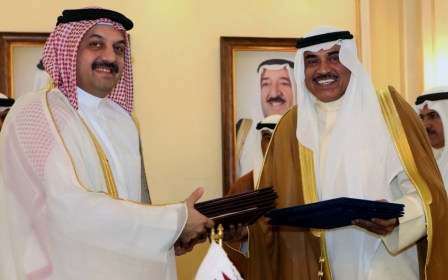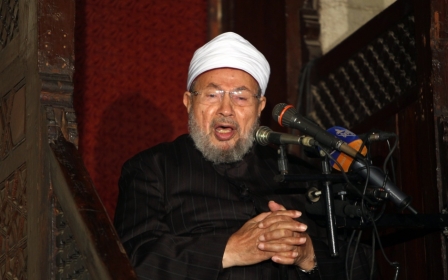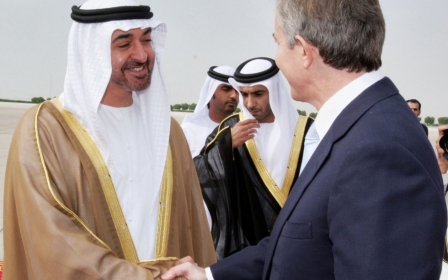UAE accused of arresting and torturing Qataris

The United Arab Emirates (UAE) has come in for criticism for allegedly imprisoning and torturing Qatari nationals.
A report by the local Arabic daily Al Arab has claimed that "Abu Dhabi inhumanely arrested three Qatari citizens who were traveling to the UAE for tourism and to visit their relatives."
"There is information that the three citizens are currently being tortured in prison."
Another local Arabic daily, Al Sharq, alleged that two men had been picked up at the Al Guwaifat border post and belong to the “al-Malla and al-Hamadi families.”
No reason has been given for the arrests and the men have been denied family visits, although Qatari officials have been in touch with UAE officials, supposedly about the incident.
According to a statement on the Qatari Foreign ministry website “His excellency General Khabir Khamis Matar al-Muzayyina, head of Dubai police, met with his excellency Ahmed bin Ali al-Tamimi, the general Consul for the state of Qatar in Dubai and the northern emirates.”
“The meeting discussed bilateral relations between the two brotherly countries, as well as how to develop and strengthen them on all levels.”
A tweet from the Qatari foreign ministry appeared to confirm the arrests had taken place and said that “the State has never abandoned its people. It is taking all the necessary action through legal and diplomatic channels.”
News of these arrests will only compound the outrage caused by the conviction of Qatari doctor Mahmood al-Jaidah in March for “supporting an illegal organisation” which the UAE authorities declined to name, although it is assumed by human rights NGOs to be the Muslim Brotherhood.
Jaidah’s 7 year jail sentence was criticised by numerous international observers, including Amnesty International, who called his trial “grossly unfair.”
“Today’s disgraceful sentencing of Mahmoud al-Jaidah is a farce and makes a mockery of the UAE’s claim to be a progressive country that respects human rights,” said Said Boumedouha, Deputy Director of Amnesty International’s Middle East and North Africa Programme, at the time.
“He was arrested without a warrant, blindfolded and flung into solitary confinement before being repeatedly tortured, ill-treated and forced to sign papers he wasn’t allowed to read.”
Al Sharq also reported that Qatari citizens have been subjected to “teasing” and greater scrutiny from security services at UAE airports.
Deteriorating relations
Relations between the two Gulf Co-operation Council (GCC) members have been strained as a result of numerous international disagreements, in particular the question of support for the new government in Egypt.
Qatar was a financial and political supporter of the now banned Muslim Brotherhood, while since the ouster of Brotherhood-backed President Mohamed Morsi the UAE has provided financial support to the government of Abdel Fatah al-Sisi.
In March, the UAE, along with Saudi Arabia and Bahrain, withdrew their diplomats from Qatar.
In a joint statement they said that members of the GCC had in November signed "a security agreement and a commitment to the principles that ensure non-interference in the internal affairs of any of the GCC countries, either directly or indirectly, and not to support any activity that would threaten the security and stability of any of the GCC countries from organizations or individuals, including support for hostile media” and that they felt that Qatar “did not take the necessary actions to put it into practice.”
This was widely interpreted as referring to Qatar continued support for the Brotherhood in Egypt.
New MEE newsletter: Jerusalem Dispatch
Sign up to get the latest insights and analysis on Israel-Palestine, alongside Turkey Unpacked and other MEE newsletters
Middle East Eye delivers independent and unrivalled coverage and analysis of the Middle East, North Africa and beyond. To learn more about republishing this content and the associated fees, please fill out this form. More about MEE can be found here.




